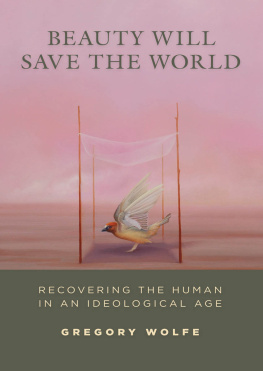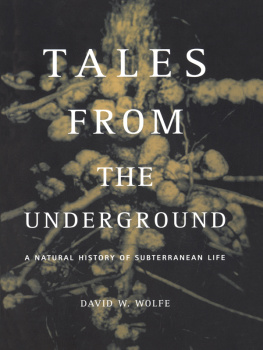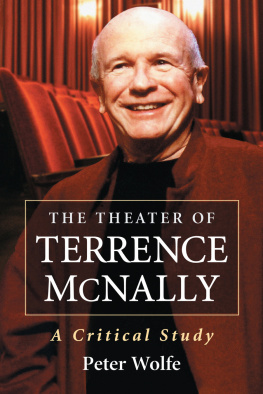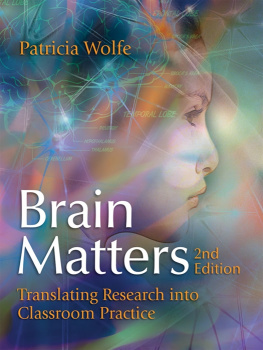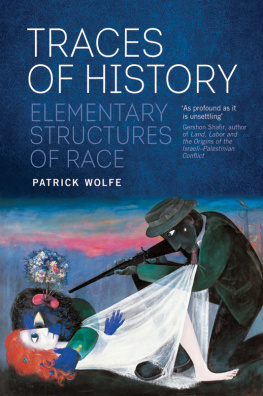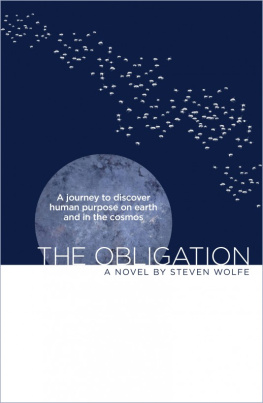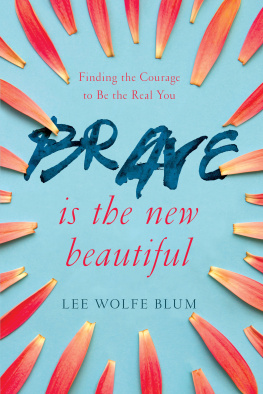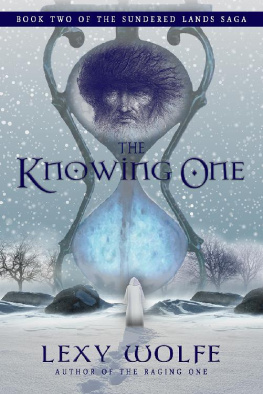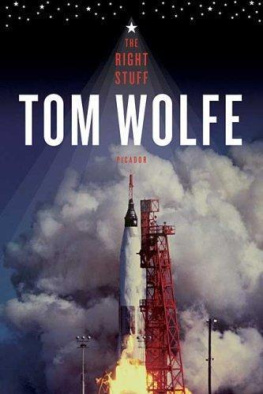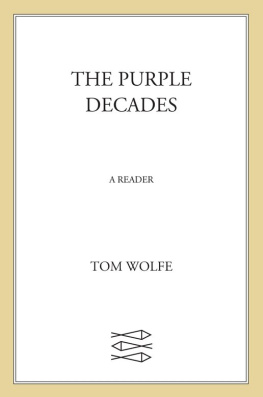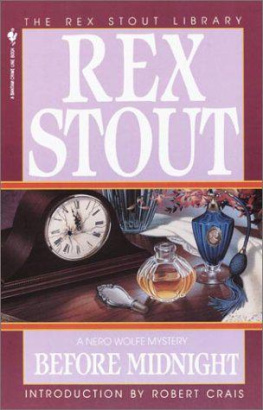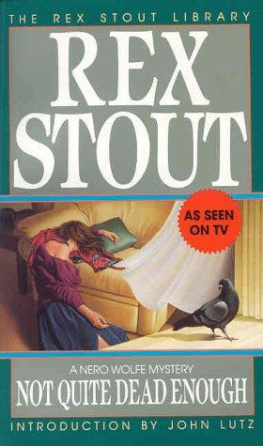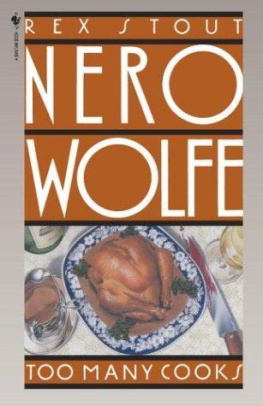Wolfe - Beauty Will Save the World
Here you can read online Wolfe - Beauty Will Save the World full text of the book (entire story) in english for free. Download pdf and epub, get meaning, cover and reviews about this ebook. year: 2014, publisher: Intercollegiate Studies Institute, genre: Religion. Description of the work, (preface) as well as reviews are available. Best literature library LitArk.com created for fans of good reading and offers a wide selection of genres:
Romance novel
Science fiction
Adventure
Detective
Science
History
Home and family
Prose
Art
Politics
Computer
Non-fiction
Religion
Business
Children
Humor
Choose a favorite category and find really read worthwhile books. Enjoy immersion in the world of imagination, feel the emotions of the characters or learn something new for yourself, make an fascinating discovery.
Beauty Will Save the World: summary, description and annotation
We offer to read an annotation, description, summary or preface (depends on what the author of the book "Beauty Will Save the World" wrote himself). If you haven't found the necessary information about the book — write in the comments, we will try to find it.
Culture, Not Politics
Beauty Will Save the World — read online for free the complete book (whole text) full work
Below is the text of the book, divided by pages. System saving the place of the last page read, allows you to conveniently read the book "Beauty Will Save the World" online for free, without having to search again every time where you left off. Put a bookmark, and you can go to the page where you finished reading at any time.
Font size:
Interval:
Bookmark:

For Suzanne, my beauty
Dostoevsky once let drop the enigmatic phrase: Beauty will save the world. What does this mean? For a long time it used to seem to me that this was a mere phrase. Just how could such a thing be possible? When had it ever happened in the bloodthirsty course of history that beauty had saved anyone from anything? Beauty had provided embellishment, certainly, given upliftbut whom had it ever saved?
However, there is a special quality in the essence of beauty, a special quality in the status of art: the conviction carried by a genuine work of art is absolutely indisputable and tames even the strongly opposed heart. One can construct a political speech, an assertive journalistic polemic, a program for organizing society, a philosophical system, so that in appearance it is smooth, well structured, and yet it is built upon a mistake, a lie; and the hidden element, the distortion, will not immediately become visible. And a speech, or a journalistic essay, or a program in rebuttal, or a different philosophical structure can be counterposed to the firstand it will seem just as well constructed and as smooth, and everything will seem to fit. And therefore one has faith in themyet one has no faith.
It is vain to affirm that which the heart does not confirm. In contrast, a work of art bears within itself its own confirmation: concepts which are manufactured out of whole cloth or overstrained will not stand up to being tested in images, will somehow fall apart and turn out to be sickly and pallid and convincing to no one. Works steeped in truth and presenting it to us vividly alive will take hold of us, will attract us to themselves with great powerand no one, ever, even in a later age, will presume to negate them. And so perhaps that old trinity of Truth and Good and Beauty is not just the formal outworn formula it used to seem to us during our heady, materialistic youth. If the crests of these three trees join together, as the investigators and explorers used to affirm, and if the too obvious, too straight branches of Truth and Good are crushed or amputated and cannot reach the lightyet perhaps the whimsical, unpredictable, unexpected branches of Beauty will make their way through and soar up to that very place and in this way perform the work of all three.
And in that case it was not a slip of the tongue for Dostoevsky to say that Beauty will save the world, but a prophecy.
Aleksandr Solzhenitsyn, Nobel Lecture
Prologue
The Four Cultures and Me
An old Albert Brooks film has been rattling around in my head of late: Defending Your Life. You may recall it. A divorced advertising exec fiddles with the CD player in his brand new BMW and plows into a city bus, only to find himself in Judgment City, where he has to account for himself in a jury trial in which the evidence consists of episodes from his life. The worst possible result isnt exactly hell; its being sent back to earth for another attempt, rather than moving forward to a better planet and a better life.
In the version of the film playing in my head, the judges, prosecutor, and defender all bear a striking resemblance to me. Now that I have arrived at that mid-way point of which Dante speaks, I find myself looking back, trying to figure out exactly how I got here. I may not be quite as lost as Dantes pilgrim in the dark wood, but I am beginning to realize one thingjust how wrong Ive been in thinking I always knew what I was doing. The conscious choices I made now appear to me more like the icebergs tip. The greater massmy deeper selfhas been below the surface, moved by currents of which I am only now becoming aware.
Reflections of this sort tend to accompany the task of assembling essays written over the course of a quarter century.
Ive found some consolation in the thought that Dantes pilgrimage doesnt really begin at mid-life; in a sense, hes been on a pilgrimage all along. His youthful encounter with Beatrice, apprenticeship to the craft of poetry, and entanglement with the political vicissitudes of Florencethese and other chapters of his story shape the course of his voyage through the afterlife.
In other words, what happens when Dante the pilgrim sets off with Virgil is not so much a brand new life as it is an altered perspective on thelife he already has. It is precisely through Beatrice, poetry, and politics that he will find the path toward redemption.
Gaining Perspective
Not long ago I came across a book that provided something of a roadmap for the pilgrimage Ive been tracing: Four Cultures of the West. I hesitate to cast its author, John W. OMalley, S. J., in the role of Virgil, but he has helped me to gain a sense of perspective on my journeyand on whatever coherence the essays in this book may possess.
Four Cultures of the West is a lively, wide-ranging, historical survey of the core styles of thought and vision that have shaped our civilization. OMalley is a church historian specializing in the early modern period; he has written about the Council of Trent and the founding of the Jesuit order. As it turns out, Four Cultures is a book written in much the same spirit as I read it. In the introduction he says, I was curious to understand better what had happened to me in the process of being educated as a Jesuit.
Im not a Jesuit, but in OMalleys story Ive begun to grasp an order in what formerly was inchoate. Though he is too modest a man to say it outright in the pages of his book, it is no exaggeration to say that the Jesuit order was founded in the Renaissance during a remarkable period in which all four of these cultures were synthesized by Ignatius of Loyola and his followers. At the outset of Four Cultures, OMalley alludes to the early church father Tertullians famous challenge: What has Jerusalem to do with Athens? In other words, what do the prophetic, religious cultures of Judaism and Christianity have to do with the worldly cultures of ancient Greece and Rome?
The answer given by the West, as it evolved through the medieval and Renaissance eras, was: plenty. Tertullians prophetic culture was placed in a dynamic, productive tension with the other three cultures: the academic/professional culture of the philosophers and scientists, the humanistic culture of poets, rhetoricians, and statesmen, and the artistic culture of visual and performing artists.
Another way to look at this synthesis is through the ancient language of the transcendentals: if the prophetic culture was fundamentally concerned with goodness and the academic culture with truth, then rhetoric and the arts sought to reflect beauty.
Father OMalley is aware of the dangers of sweeping generalization. He concedes that there are a number of other cultures, such as the culture ofbusiness. But he makes a compelling case for the Big Four as fundamental to our development as a civilization.
In meditating upon the interplay between these culturessometimes harmonic and often antagonisticIve come to understand a bit more about my own pilgrimage. Thanks to the love and generosity of my parents, I received an outstanding education, both in and out of the classroom. I was steeped from childhood in all four cultures, but as I came to maturity, I found myself inexorably drawn to the task of promoting two of them because I had seen what happened when the other two ran amok.
In his book Father OMalley refrains from discussing any metatheory of how the cultures ought to relate to one another. Instead, he sticks to historically grounded description. At first I found this frustrating. I was hoping for some color commentary, some grand, unified theory. But I came to see the wisdom of his method: he hopes that the reader will make application to your own milieu.
Font size:
Interval:
Bookmark:
Similar books «Beauty Will Save the World»
Look at similar books to Beauty Will Save the World. We have selected literature similar in name and meaning in the hope of providing readers with more options to find new, interesting, not yet read works.
Discussion, reviews of the book Beauty Will Save the World and just readers' own opinions. Leave your comments, write what you think about the work, its meaning or the main characters. Specify what exactly you liked and what you didn't like, and why you think so.

